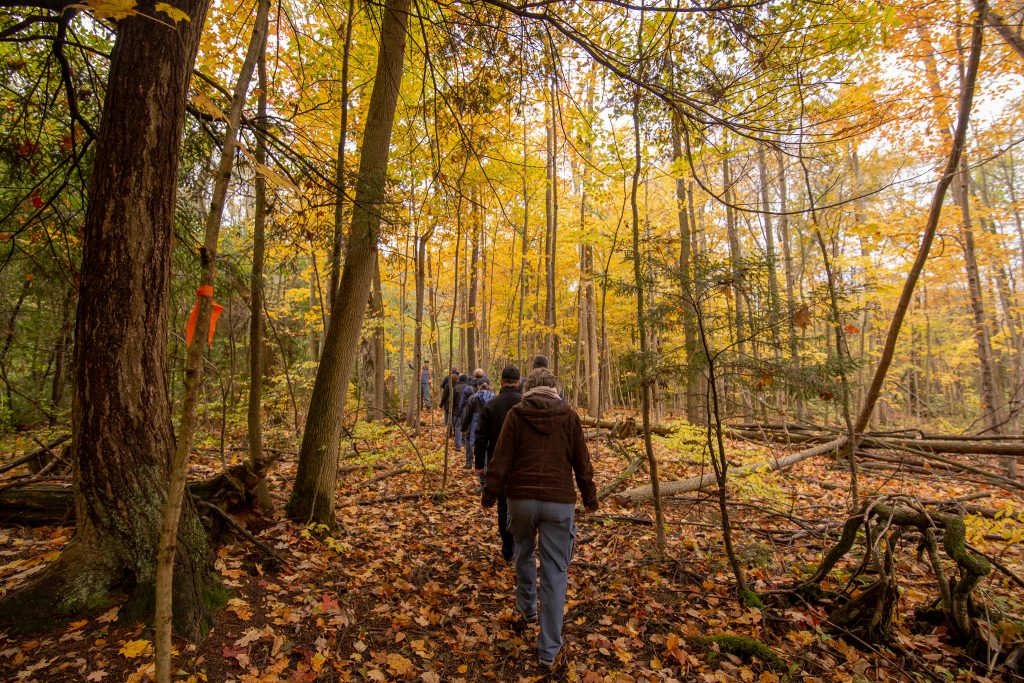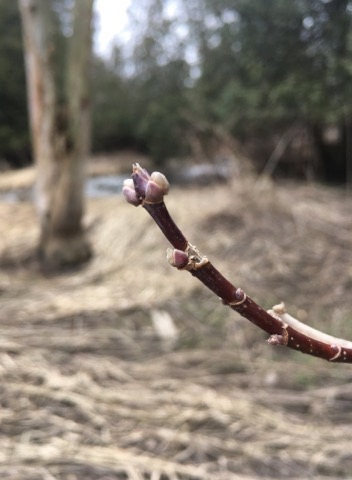Much has changed in the past few weeks. The rapid progression of the novel coronavirus (COVID-19) in Canada has led to the cancellation of public events and closure of most public places. While these changes have certainly been necessary, isolation from friends and family can quickly lead to feelings of loneliness, stress, and anxiety.
In these uncertain times, forests can be places of comfort that support both our physical and our mental health. There is no question about it; time spent in nature has been shown to improve mood, and relieve anxiety, stress, and symptoms of depression. Forest bathing, also called shinrin-yoku, is the act of being in nature and connecting with it through our senses. Soaking up the forest in this way and finding a sense of calm can be a powerful way to care for your health. While keeping some precautions in mind (see the list below for some advice), a walk through the woods can be a very safe–and often much-needed–activity at this time.
Now perhaps more than ever, it is important to do what we can to maintain good health. Spring is the season when everything is coming back to life, and a walk through the woods can be a rejuvenating experience. If you go for a walk today, you will probably see fresh buds on the trees, new growth bursting through the soil, and birds and other wildlife going about their normal lives. Making time for a daily walk outdoors–while maintaining physical distance from others–should be a priority. In a time when it feels like everything has changed, signs of spring are a reminder of better times to come.
Here are some important tips for spending time outdoors during the COVID-19 pandemic:
- Practice social distancing. This means keeping a distance from others of 2 metres (6 feet) or greater. If you are hiking on a trail, you may need to briefly step off the trail to let others pass safely.
- Do not go out if you feel ill or are under quarantine. Refer to current guidelines for self-isolation from the Public Health Agency of Canada.
- Do not congregate in groups, and minimize your interactions with individuals outside of your household.
- Pay attention to local restrictions that have been implemented in the past couple of weeks. Several Conservation Areas in Ontario and all Provincial Parks are closed at this time. National Parks are currently closed to motorized vehicles, and public facilities are closed.
Now is the time to appreciate our woodlands for what they do to help us cope. It is my hope that when all of this has passed, everyone will come to appreciate our forests a little more for all that they have done for us.


